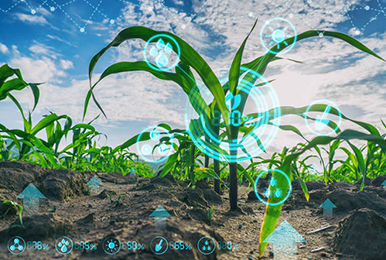smart soil moisture sensors
The development of smart soil moisture sensors has emerged as a game-changer in precision farming. However, traditional methods of monitoring soil moisture are often time-consuming and imprecise. In agriculture, maintaining optimal soil moisture levels is crucial for the success of crops. This article aims to explore the features, benefits, and future implications of a smart soil moisture sensor.

Features of Soil Moisture sensor
JXCT-3001 is a state-of-the-art smart soil moisture sensor that revolutionizes the way farmers monitor and manage soil moisture levels in their fields. Let’s delve into its key features:

Real-Time Monitoring: Moisture Track continuously measures soil moisture content and provides real-time data. This allows farmers to make informed decisions regarding irrigation schedules and water management practices. With accurate and up-to-date information, farmers can optimize their irrigation strategies to ensure crops receive the right amount of water at the right time.
Wireless Connectivity: The sensor is equipped with wireless connectivity, allowing farmers to remotely access the data through a mobile app or web portal. This eliminates the need for physical checks on-site and provides convenience and flexibility. Farmers can easily monitor soil moisture levels from anywhere, enabling them to respond quickly to changes and take necessary actions promptly.

Multiple Sensors: Moisture Track utilizes multiple sensors strategically placed in different areas of the field. This ensures accurate and comprehensive monitoring, taking into account variations in soil moisture across the entire cultivation area. By collecting data from multiple points, MoistureTrack provides a holistic view of soil moisture conditions, leading to more precise irrigation management.
Customizable Thresholds: Farmers can set customized moisture thresholds based on their specific crop requirements. When soil moisture levels fall below or exceed these thresholds, MoistureTrack sends instant alerts, ensuring timely intervention to prevent crop stress or waterlogging. This feature helps farmers strike a balance between conserving water and maintaining optimal soil moisture levels.
Benefits of Using Moisture Track
The utilization of Moisture Track as a smart soil moisture sensor brings several benefits to farmers and the agriculture industry as a whole:
Water Conservation: Water scarcity is a growing concern worldwide, and agriculture accounts for a significant portion of water usage. Moisture Track plays a crucial role in water conservation by providing precise and up-to-date data on soil moisture levels. With this information, farmers can optimize their water usage, leading to significant water savings and reduced environmental impact.

Increased Crop Yield: Maintaining optimal soil moisture levels is critical for crop growth and yield. With MoistureTrack, farmers can ensure that their crops receive the right amount of water at the right time. This results in healthier plants, improved nutrient uptake, and ultimately, increased productivity. By optimizing irrigation practices, farmers can maximize their crop yields while minimizing resource waste.
Cost Savings: Overwatering or underwatering crops can lead to financial losses for farmers. Moisture Track helps eliminate excessive irrigation or water shortages, reducing water and energy costs associated with irrigation pumps. By improving overall operational efficiency, MoistureTrack contributes to cost savings for farmers, enhancing their profitability.
Data-Driven Decision Making: The data collected by MoistureTrack offers valuable insights into soil moisture trends and patterns. Farmers can analyze this information to make informed decisions about irrigation schedules, planting strategies, and other agronomic practices. By integrating data-driven decision-making, farmers can optimize resource allocation and improve overall crop management practices.
Future Implications
The adoption of smart soil moisture sensors is poised to have a profound impact on the future of agriculture:
Integration with IoT: The Internet of Things (IoT) presents immense opportunities for agricultural advancements. Smart soil moisture sensors can be integrated into larger IoT networks, allowing seamless communication with other devices such as weather stations, automated irrigation systems, and farm management software. This integration improves automation, monitoring, and decision-making capabilities across the entire farming operation.